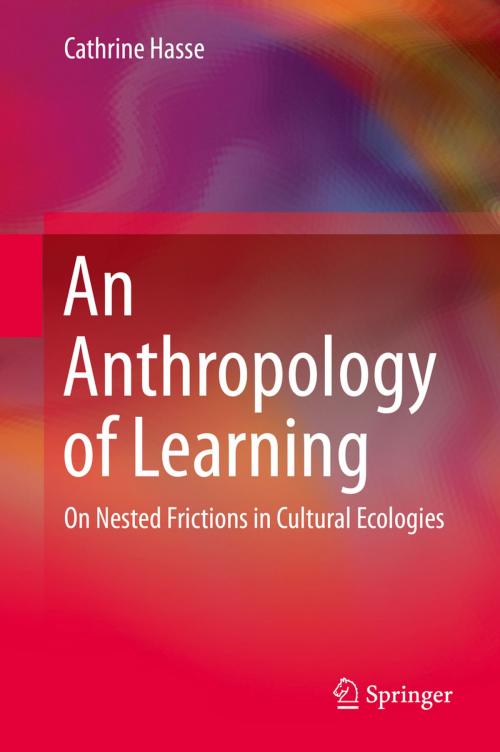An Anthropology of Learning
On Nested Frictions in Cultural Ecologies
Nonfiction, Reference & Language, Education & Teaching, Educational Theory, Educational Psychology, Social & Cultural Studies, Social Science, Anthropology| Author: | Cathrine Hasse | ISBN: | 9789401796064 |
| Publisher: | Springer Netherlands | Publication: | December 5, 2014 |
| Imprint: | Springer | Language: | English |
| Author: | Cathrine Hasse |
| ISBN: | 9789401796064 |
| Publisher: | Springer Netherlands |
| Publication: | December 5, 2014 |
| Imprint: | Springer |
| Language: | English |
This book has one explicit purpose: to present a new theory of cultural learning in organisations which combines practice-based learning with cultural models - a cognitive anthropological schema theory of taken-for-granted connections - tied to the everyday meaningful use of artefacts. The understanding of culture as emerging in a process of learning open up for new understandings, which is useful for researchers, practitioners and students interested in dynamic studies of culture and cultural studies of organisations. The new approach goes beyond culture as a static, essentialist entity and open for our possibility to learn in organisations across national cultures, across ethnicity and across the apparently insurmountable local educational differences which makes it difficult for people to communicate working together in an increasingly globalized world. The empirical examples are mainly drawn from organisations of education and science which are melting-pots of cultural encounters.
This book has one explicit purpose: to present a new theory of cultural learning in organisations which combines practice-based learning with cultural models - a cognitive anthropological schema theory of taken-for-granted connections - tied to the everyday meaningful use of artefacts. The understanding of culture as emerging in a process of learning open up for new understandings, which is useful for researchers, practitioners and students interested in dynamic studies of culture and cultural studies of organisations. The new approach goes beyond culture as a static, essentialist entity and open for our possibility to learn in organisations across national cultures, across ethnicity and across the apparently insurmountable local educational differences which makes it difficult for people to communicate working together in an increasingly globalized world. The empirical examples are mainly drawn from organisations of education and science which are melting-pots of cultural encounters.















